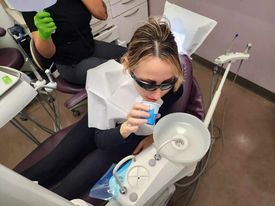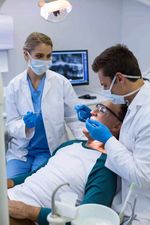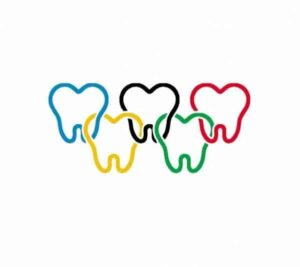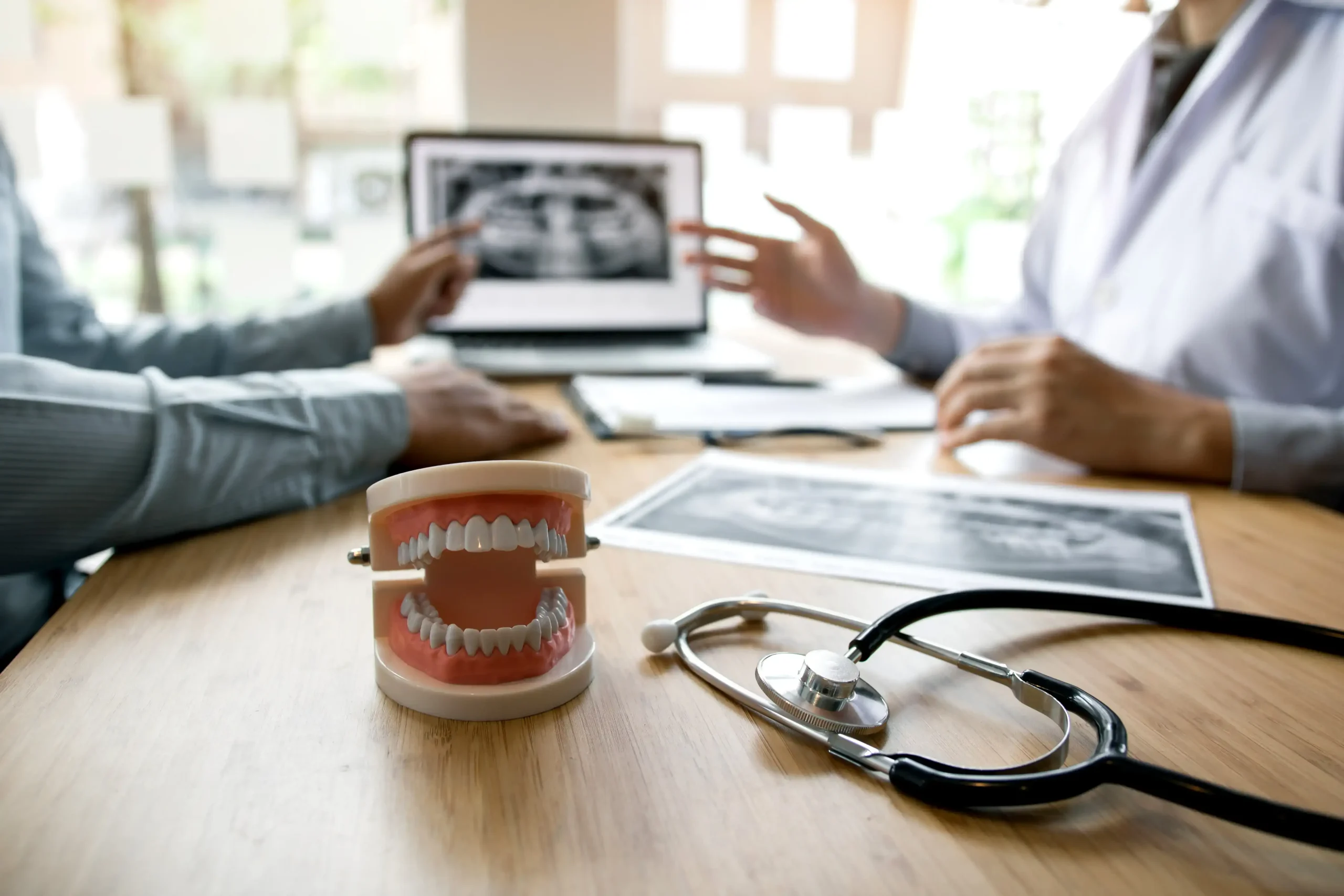An emergency dentist provides urgent dental care, often offering same-day appointments. These professionals address acute oral pain, injuries, or infections requiring immediate attention.
Seeking a Scarborough emergency dentist can be a crucial choice when faced with sudden dental issues such as a knocked-out tooth, severe toothache, or a broken crown. These experts aim to alleviate pain and prevent further damage to your oral health.
With services often available beyond regular clinic hours, emergency dentists stand ready to treat your dental emergencies efficiently and effectively. Their quick response and specialized care ensure that dental crises are managed with the utmost urgency, offering relief when patients need it the most. Trust in an emergency dentist for reliable, prompt treatment during dental distress.

Recognizing Dental Emergencies
It’s crucial to know when a dental issue is an emergency. Not every toothache or dental discomfort warrants immediate care, but some oral health complications require urgent attention. Below, the differences between non-urgent dental problems and true emergencies are explored, alongside signs that suggest you need to seek immediate professional help. Timely action can often save your teeth, prevent infection, and reduce the need for extensive, costly dental procedures down the line.
Understanding Types Of Dental Emergencies
Dental emergencies can strike at any moment, and understanding what constitutes an emergency is the first vital step toward managing your oral health. Generally, these are incidents that involve severe pain, significant bleeding, or trauma that results in tooth loss or damage. Immediate attention from a dentist is crucial in these cases.
| Type of Emergency | Description | Examples |
| Infections | Serious infections like an abscess can be life-threatening and demand prompt treatment | Swollen gums, throbbing pain, pus |
| Physical Trauma | Injury causing tooth displacement, fracture, or loss | Knocked-out tooth, broken tooth |
| Severe Pain | Intense, continuous pain indicates an underlying problem | Persistent toothache, pain when biting |
Identifying Symptoms That Warrant Immediate Attention
Not all dental problems exhibit clear signs, but there are symptoms to watch for that dictate the need for emergency care. Below is a list that, if experienced, should prompt an immediate call to your dentist or a trip to an emergency dental clinic:
- Sudden or Severe Toothache: This could signify an infection or other serious dental issue.
- Loose or Knocked-Out Tooth: With prompt action, a dentist can possibly save the tooth.
- Uncontrollable Bleeding: Continuous bleeding after an oral surgery or from an injury requires urgent dental care.
- Swelling in the Jaw or Mouth Area: This could indicate a serious infection such as an abscess.
- Visible Signs of Infection: If you notice pus, a foul taste in your mouth, or a fever alongside dental pain, it’s time to seek immediate help.
These symptoms not only cause significant discomfort but can also be the harbingers of more serious health issues if left untreated.
6 Tips From Your Emergency Dentist In Scarborough
Welcome to the ultimate guide on maintaining your pearly whites with the expertise of your emergency dentist in Scarborough. Navigating dental emergencies can be daunting, but fear not. Armed with the right knowledge and habits, courtesy of your go-to Scarborough dental professionals, you will confidently protect and maintain your oral health. Below, uncover the six pivotal tips that will forever transform how you address your dental care routine.
Remember That Dental Treatments Are Not Magical
Timely intervention is crucial for dental emergencies. Recognize that while dentists work wonders, they cannot reverse damage caused by neglect or trauma overnight. Immediate care can save your tooth, but healing and full recovery take time. Patience and following your dentist’s advice are essential for managing your expectations and outcomes.
Cosmetic Dentistry Is About More Than Appearance
Underestimating the value of cosmetic dentistry is common. It not only enhances your smile but also improves overall dental function. Treatments like veneers or crowns protect damaged teeth, while aligners correct misalignments that could otherwise lead to bigger issues. Cosmetic dentistry offers health benefits that contribute to a lasting and healthy smile.
Prevent Smoking
- Avoid tobacco products to protect against gum disease, tooth discoloration, and oral cancer.
- Smoking hinders blood flow to the gums, impeding healing and decreasing the success rates of dental treatments.
- Kick the habit for a healthier mouth and improved outcomes with dental interventions.
Stay Away From Restricted Foods
- Heed your dentist’s advice on foods and beverages to avoid following a dental procedure.
- Hard, sticky, or chewy foods can disrupt the healing process or damage dental work.
- Opt for soft foods and clear liquids as directed to safeguard your dental health.
Maintain Proper Dental Health
Consistent oral hygiene is non-negotiable. Brush and floss daily to prevent plaque buildup and infections. Incorporate mouthwash as an extra layer of protection. Good oral habits are the foundation of a healthy mouth and the cornerstone of making each dental visit a breeze.
Have Regular Check-ups Or As Required
Regular dental appointments are indispensable for early detection and treatment of problems. Whether it’s for routine cleaning or assessing a potential issue, visiting your dentist habitually allows for quicker interventions and less invasive treatments. Bear in mind that annual or biannual visits may vary based on individual dental health needs.
Finding An Emergency Dentist In Scarborough
When urgent dental issues strike, finding an Emergency Dentist in Scarborough can mean the difference between saving or losing a tooth or getting immediate pain relief. Whether it’s a broken tooth, a lost filling, or a severe toothache, Scarborough residents have options at their fingertips. This guide will steer you through the process of locating and evaluating emergency dental care in the area swiftly and efficiently.
Locating Nearby Emergency Dental Clinics Or Practitioners
Begin by searching online for local emergency dental clinics in Scarborough. Utilize search engines, dental directories, and even social media platforms that often list local services. Look for offices that mention emergency services as part of their offerings.
- Use location-based services such as Google Maps to find the closest clinics.
- Check patient reviews to get an idea of their experiences and satisfaction with the clinic’s emergency care.
- Visit clinic websites directly to view more in-depth information about their emergency services.
| Clinic Name | Address | Contact | Reviews |
| Scarborough Dental Care | 123 Dental St, Scarborough | (416) 123-4567 | 4.5 stars |
| Emergency Tooth Clinic | 456 Molar Ave, Scarborough | (416) 234-5678 | 4.7 stars |
Evaluating Their Availability And Services
Once you have a list of potential emergency dentists, it’s crucial to evaluate their availability and the range of services they offer. Emergency dental needs can arise at any time, and ensuring that prompt care can be provided is key.
- Check the clinic’s operating hours and if they offer after-hours or weekend emergency services.
- Find out if walk-ins are accepted or if you need to call ahead to book an emergency appointment.
- Ensure they offer the specific service you need, such as dental bonding, extractions, or root canal therapy.
Assess the clinic’s capacity to handle emergencies by contacting them directly. A quick phone call can usually provide insight into their ability to address your crisis and give you an idea of the potential wait times and costs.
Managing Dental Emergencies At Home
Dental emergencies can strike at any moment, often when it’s least convenient. Whether it’s a broken tooth, sudden pain, or a dental injury, knowing how to manage the situation until you can get to an emergency dentist can mean the difference between saving or losing a tooth, and sometimes – avoiding serious complications. Below are essential tips and first-aid measures to help you take control during a dental emergency.
Tips For Handling Common Dental Emergencies Before Seeing A Dentist
When a dental crisis occurs, quick thinking and staying calm are crucial. Here are some practical steps to follow:
- For a knocked-out tooth: Handle the tooth by the crown, not the root. Rinse it gently without scrubbing and attempt to reinsert it into its socket. If this isn’t possible, keep the tooth moist in milk or saliva.
- With toothaches: Clean the area around the sore tooth meticulously. Rinse the mouth thoroughly with warm salt water to dislodge trapped food particles or debris.
- In case of a chipped or broken tooth: Save any pieces. Rinse the mouth and the broken pieces. Apply a cold compress to the outside of the mouth to lower swelling and pain.
- For a lost filling: Stick a piece of sugarless gum into the cavity or use dental temporary filling material found in drugstores.
- If you have a lost crown: Gather the crown, and fix it temporarily using dental cement, toothpaste, or denture adhesive to hold it in place until dental help is obtained.
First Aid Measures For Dental Injuries Or Infections
Immediate first aid can prevent complications and help dentists treat the situation effectively once you’re in their care:
| Dental Emergency | First Aid Measure |
| Abscess or Serious Infection | Rinse with warm salt water several times a day to ease pain and draw the pus to the surface. |
| Soft-tissue injuries | Rinse with a mild salt-water solution. If bleeding, try to stop it by pressing a clean piece of material firmly on the injury site for 15-20 minutes. |
| Bleeding after a baby tooth falls out | Have the child bite down on a clean, damp gauze or cloth. Apply pressure to the area for 10 minutes or until the bleeding stops. |
| Orthodontic discomfort | For general soreness, rinse the mouth with warm salt water. If wire or braces cause irritation, cover the end with a small cotton ball or beeswax. |
Remember these steps are temporary measures. Timely professional help is critical. Contact an emergency dentist immediately following these first aid actions.
Treatment Procedures For Dental Emergencies
When unexpected dental issues strike, knowing the treatment procedures for dental emergencies can make a crucial difference in managing pain and preventing further complications. Emergency dentists specialize in addressing acute dental problems swiftly and effectively, often offering same-day appointments to alleviate severe discomfort and safeguard your dental health. Highlighting immediate interventions and the common treatments available, this post delves into what patients can expect during urgent dental care.
Common Treatments Provided By Emergency Dentists
Emergency dentists are equipped to handle a broad range of dental crises with a variety of treatment procedures, tailored to swiftly manage pain and prevent further dental damage. These include:
- Emergency Tooth Extractions: Urgently removing a tooth that cannot be saved to eliminate pain and prevent infection.
- Root Canal Therapy: Addressing tooth abscesses or severe decay by removing the infected dental pulp to save the tooth.
- Dental Fillings and Crowns: Restoring damaged teeth due to cavities or trauma with fillings or crowns that offer immediate relief and functional support.
- Reattachment of Knocked-Out Teeth: Prompt reinsertion and stabilization of avulsed teeth, crucial for tooth survival.
- Management of Dental Abscesses: Draining abscesses to alleviate pain and prescribing antibiotics to handle the infection.
Understanding The Processes Involved In Urgent Dental Care
When facing a dental emergency, understanding the immediate actions taken by emergency dentists can ease the anxiety associated with urgent dental treatments. These processes commonly include:
- Assessment and Diagnostics: An initial examination followed by X-rays or other diagnostic tests to determine the extent of the emergency.
- Anesthesia: Local anesthesia to numb the affected area, ensuring a pain-free treatment experience.
- Rapid Treatment Implementation: Executing the appropriate procedure swiftly to alleviate pain, prevent infection, or save the tooth.
- Post-Procedure Care: Providing guidance on post-treatment care and scheduling follow-up appointments as needed.
Emergency dental care aims to not only treat the immediate problem but also protect your long-term oral health. Prompt attention to dental emergencies can mean the difference between saving a tooth and losing it, truly highlighting the critical role emergency dentists play in dental health management.
Preventing Future Dental Emergencies
No one enjoys the pain and inconvenience of a dental emergency. Not to mention the often unexpected expenses. Fortunately, much like any other health issue, certain preventative measures can drastically reduce the likelihood of sudden dental problems. Maintaining optimal oral health and staying proactive in your dental care routine can save you from urgent, unforeseen visits to the emergency dentist. Let’s explore the essential habits to minimize your risk of dental emergencies.
Tips For Maintaining Oral Health To Minimize The Risk Of Emergencies
Maintaining stellar oral hygiene is your first line of defense against dental emergencies. Here are actionable tips to incorporate into your daily routine:
- Brush your teeth at least twice a day with fluoride toothpaste.
- Floss daily to remove plaque that can lead to tooth decay and gum disease.
- Avoid hard or sticky foods that can cause cracks or dislodge fillings.
- Use a mouthguard during sports to protect against tooth and mouth injuries.
- Never use your teeth to cut or open things to prevent chipping or breaking.
- Replace your toothbrush every three to four months or sooner if the bristles are frayed.
Implementing these practices significantly cuts down the risk of encountering dental emergencies and promotes long-term oral health.
Understanding The Role Of Regular Dental Check-ups In Preventing Urgent Situations
Regular dental check-ups function as a preventative measure. An emergency dentist can often spot trouble before it turns urgent. Routine visits allow for:
- Thorough cleaning that removes stubborn plaque and tartar build-up.
- Early detection of cavities to fill them before they become problematic.
- Assessing the health of your gums to catch signs of gum disease early on.
- Identifying wear and tear on existing dental work before it fails.
| Check-Up Frequency | Expected Benefits |
| 6 Months |
|
| Annually |
|
Dentists recommend a check-up at least every six months; however, some individuals may require more frequent visits due to particular conditions or risks. Adhering to these appointments can preempt most dental crises, ensuring your smile stays healthy and bright.
Frequently Asked Questions For Emergency Dentist
What Services Does An Emergency Dentist Offer?
An emergency dentist provides urgent dental care services. These typically include pain relief for toothaches, repairs for broken or knocked-out teeth, and treatment for abscesses or infections. Their goal is to address immediate dental concerns quickly.
How Do I Know If I Need Emergency Dental Care?
If you experience severe tooth pain, bleeding that won’t stop, a loose or knocked-out tooth, or swelling in the mouth or jaw, you should seek emergency dental care. These symptoms can indicate serious issues that require prompt attention.
Can An Emergency Dentist Perform Tooth Extractions?
Yes, emergency dentists can perform tooth extractions. This procedure is often necessary when a tooth is severely damaged and poses a risk of infection or when pain cannot be managed by other means.
What’s The Cost Of Seeing An Emergency Dentist?
The cost of emergency dental care varies depending on the treatment needed. Simple issues may cost less, while more complex emergencies involving surgery can be more expensive. Consult with the dentist’s office for specific pricing information.
Conclusion
Facing a dental emergency can be daunting, but timely intervention is key. Remember, urgent dental issues require swift attention. Your emergency dentist stands as your ally, ensuring your dental health is never compromised. Don’t hesitate to seek expert care to protect your smile in times of need.




